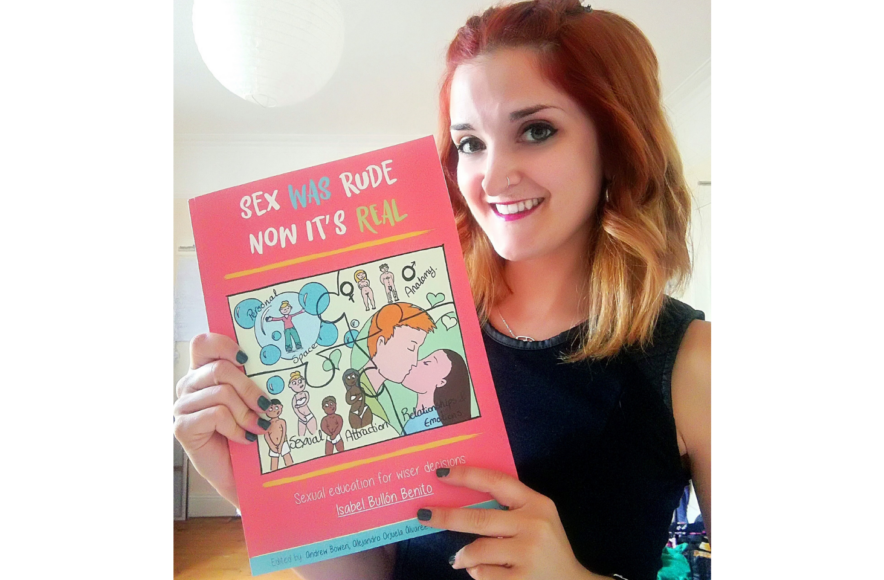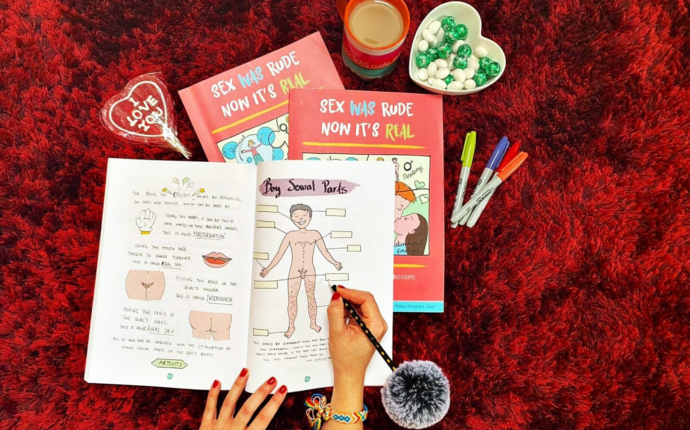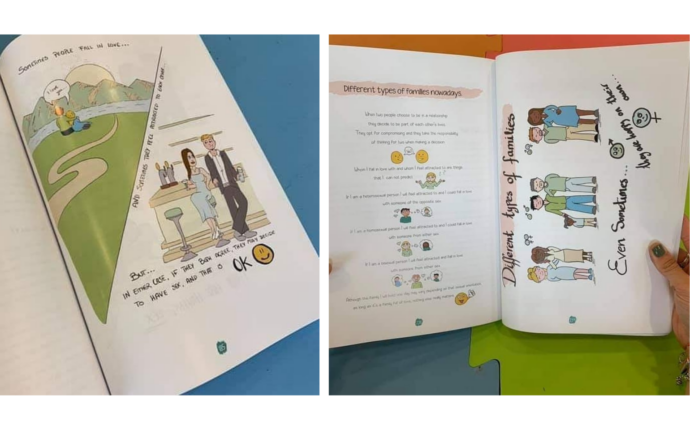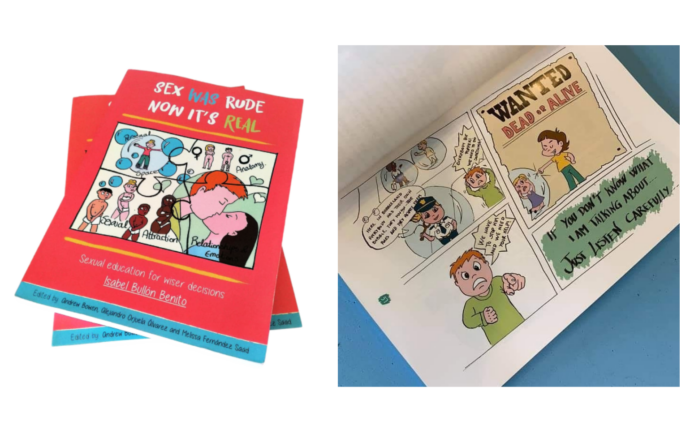‘They are adults and they have the right to know about these things’: sex education book for people with autism

Isabel previously worked at The Autism Hub, our day service in York for people with autism.
In 2018, she noticed that someone she supported was experiencing a ‘late puberty’ which was causing him to feel stressed:
“He was getting sexual arousals in public places and he didn’t really know what it was so he was getting really anxious about it and self-harming because of it.
“He didn’t know that his genitals were for anything else other than going to the loo.”
Supporting people with their sexuality
Born in Spain, Isabel has a degree in Social Work and a Masters in Educational Psychology. She has previously worked in different settings with people of all ages, including supporting adults at a rehabilitation centre and children with autism and disabilities at a nursery.
Having hosted workshops about sexuality for neurotypical people, Isabel spoke to her manager and asked if she could create some materials.
“The more I work with autistic people and people with learning disabilities, the more I’ve learnt that they are also curious. They are adults and they have the right to know about these things.”
She started designing comics, games, puzzles and activities based around the topic in order to make it more fun and less awkward for the person she was supporting.
Isabel realised there were a lot of important topics to cover:
“As I started explaining arousal, I realised I’d also need to explain things like social boundaries and whilst it’s okay to feel it, it’s not okay to do certain things in public. I also added the legal consequences and the emotional consequences for others when people do public sexual behaviour.”
“It started just with one person but there was so much that could be added to it. I kept adjusting it and I ended up with a book that’s like 300 pages!”

Her advice for anyone supporting someone to explore their sexuality is to be open-minded and patient:
“You need to listen to the person and have an open mind.
“Try to be aware that your reality and the way you see the world is going to be very different to someone you support.
“Give them the time and don’t analyse every answer – try to understand this is their lived experience.”
She continued:
“I like working with people we support, getting to see what they’re capable of and where they need guidance to do different things with their lives.
“Even with the book, I see the difference it’s made for some of them. If you think you can do the job and help somebody, give it a go!”
Want a rewarding career?
We’re recruiting across the country now. From support workers to area managers, take a look at the opportunities available in your area. Search United Response jobs
Creating person-led resources
Her materials became popular with other people who go to The Autism Hub, including some of the women we support. Isabel decided to add topics like menstruation:
“A lot of people assume that autistic people don’t want physical contact or to interact with others. They are treated like kids, like they shouldn’t know about sex.
“People will say things like ‘if a woman hasn’t shown an interest in sex then why would you start a conversation about it?’… as if we need to wait until a lady jumps on somebody!
“The ladies I was working with at The Hub didn’t even know about their own bodies. Some of them were saying they’d like to have a boyfriend so it’s important that they know about the different levels of a relationship.”

‘Sex WAS Rude, Now It’s REAL’ is split into four chapters: Personal Space, Anatomy, Sexual Attraction, Relationships and Emotions. However Isabel stressed that people can pick and choose which parts of the book they engage with:
“It’s completely flexible – you don’t have to use every single chapter. If the person knows something already, you can just move on to the next bit.”
Isabel explained that the activities in the book are all guided using three important concepts of privacy, trust and consent, giving people the knowledge to make safer decisions for them and others when it comes to sex and relationships:
“In my opinion, those are the main things we all need to know about sexuality because it’s the way we can prevent abuse from happening.”

Praise for the book
Despite the distractions and challenges brought by the pandemic, Isabel’s book has been a huge success:
“I’ve shared it with lots of people online and via social media and I had a lot of feedback from it. Some people have requested materials on transsexuality and asexuality so that’s what I’m working on now.”
Dr. Claire Bates is the founder of Supported Loving – a national network created by Choice Support which is dedicated to sharing good practice around relationships, sexuality and disability.
She said:
‘Sex WAS rude, now it’s REAL’ is a great resource that is truly needed and a considerate practice-based approach grounded in direct experiences of working with people with autism in this area. Brilliant!
Autistic blogger, researcher and speaker Victoria Ellen (@actuallyaspling) agreed:
For many, talking about puberty and sex is uncomfortable or embarrassing, however this guide is the complete opposite. It’s bright and colourful and I was drawn to it immediately.
I wish I had been given this book when I was younger, it would have helped me to understand myself, my body and my feelings.
The resources have also proven popular in other countries. They’re currently being translated to Spanish and Isabel’s even created an educational curriculum for professionals looking to use the resources in the United States.
She will be taking part at the Virtual Autism Conference in October, organised by the Autism Society of Greater Phoenix.
“It’s been great to have all these opportunities. My previous manager Joe was so supportive. He supported me to take the book to Croatia to present it, which was really exciting.”
“My new manager at URTEC Simon (Copper) has asked me to create a Self-Esteem Course for the learners and one of them will be designing the artwork.
“These materials should hopefully be available soon for teams at United Response.”
The book and related resources can be found at: https://personal-eyes-education.com/
- Jenna Lloyd is Digital Content Officer at United Response.